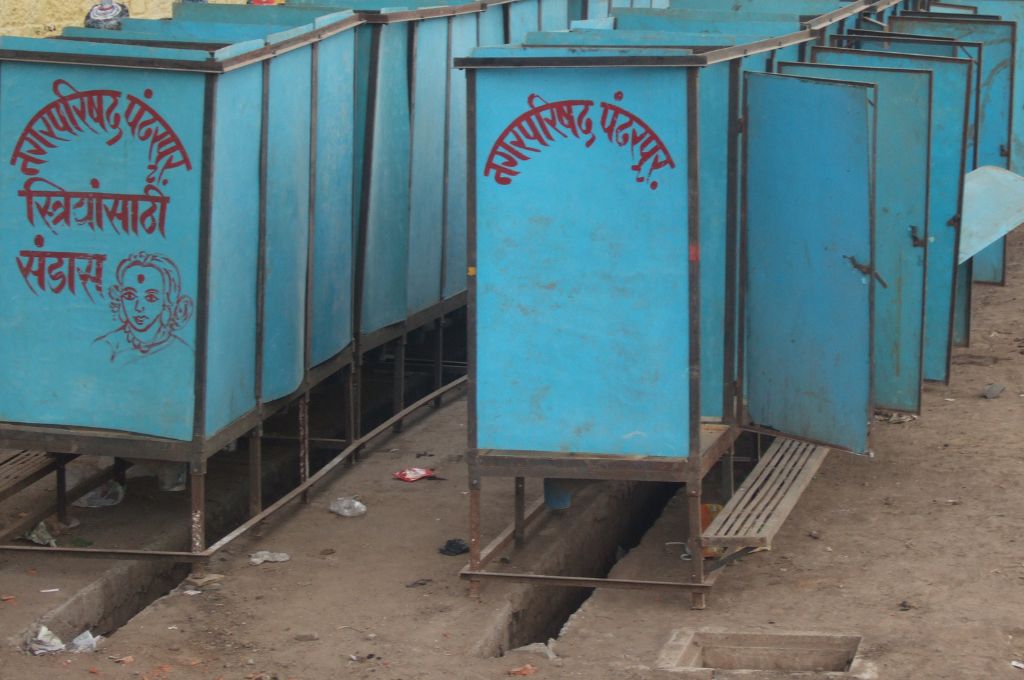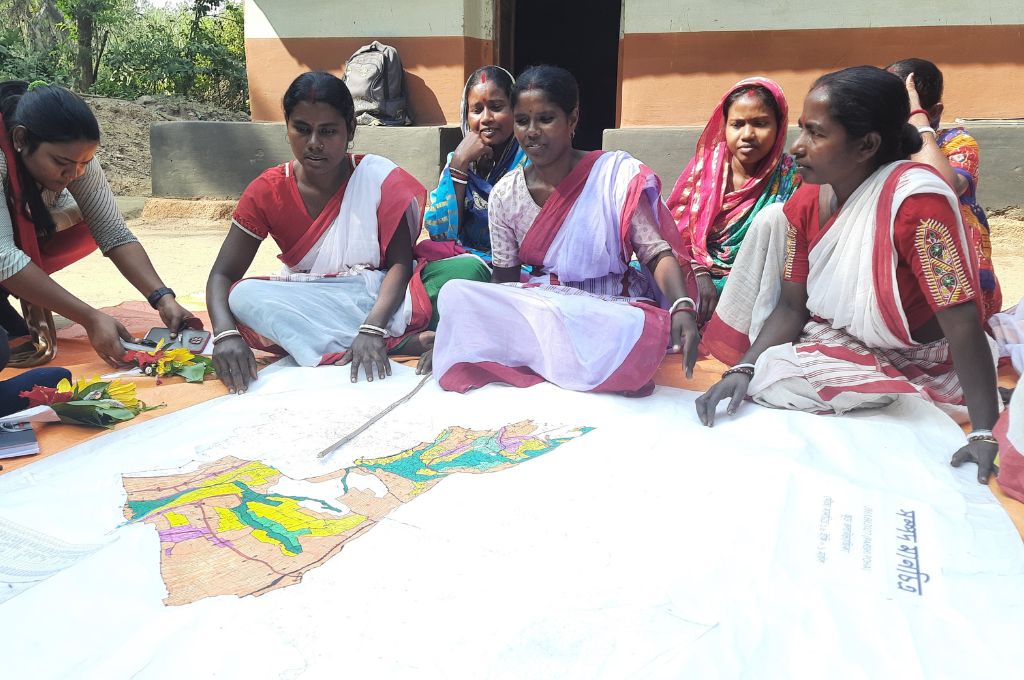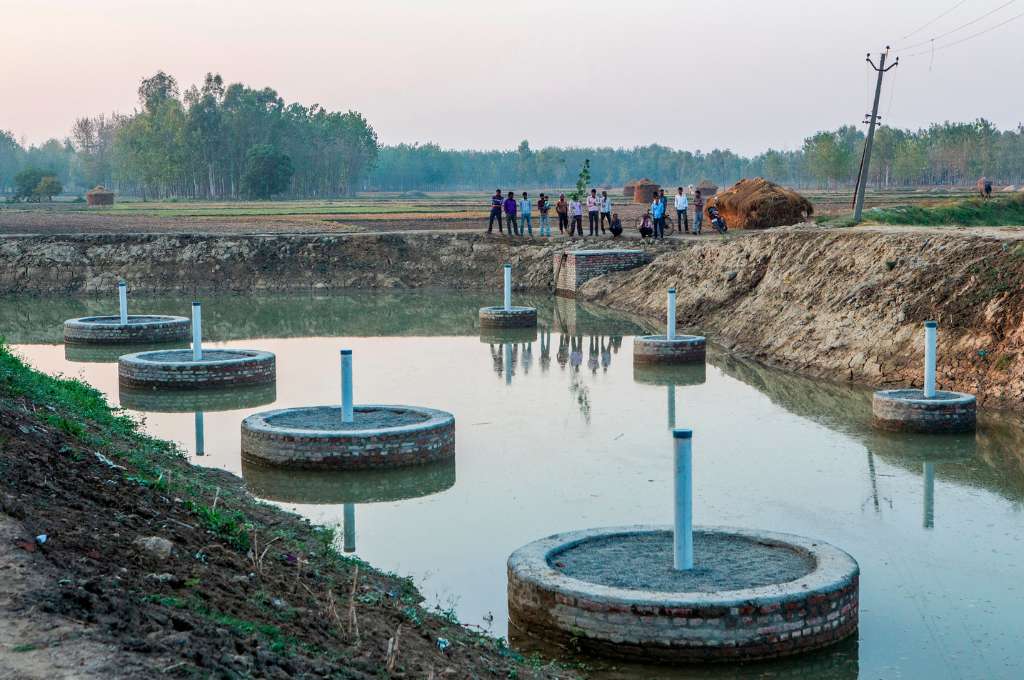The nomadic and denotified tribes (NT-DNTs) in India were falsely labelled ‘criminal’ under the Criminal Tribes Act of 1871 by British colonial rulers. While the act was repealed in 1952, the NT-DNTs continue to be criminalised and discriminated against due to their nomadic and landless status.
In 2008, the National Commission for Denotified, Nomadic and Semi-Nomadic Tribes roughly estimated the NT-DNT population in India as 10–12 crore, that is, approximately 10 percent of the country’s population. And yet they are not counted in the census conducted by the government. Most of them do not have any land in their name, which prevents them from accessing several social welfare schemes.
Public services are usually not planned keeping NT-DNTs in mind. Their needs are different because they are constantly moving. They typically reside in kaccha tent houses or pakka rented rooms and struggle to access basic amenities such as water, sanitation, and electricity. The kaccha tent houses are built on any available piece of land and cannot have toilets inside them, so they have to resort to open defecation or visit paid or communal toilets.
In order to highlight the sanitation needs of NT-DNTs, Anubhuti Trust—a nonprofit that works with marginalised communities for the recognition of their rights—conducted an audit of the sanitation facilities for NT-DNTs in Thane district, Maharashtra. Based on our findings, we prepared a list of recommendations in our report Toilet for Tents. The entire process from conceptualisation to execution was led by youth and women from NT-DNT and Bahujan communities. The findings are from 209 interviews conducted with individuals from 11 NT-DNT communities residing in 22 pockets, 14 bastis (slums), and 6 municipal corporations of Thane. Twenty-eight toilets, of which 20 were community toilets and eight were pay-and-use ones, were audited. The conditions described below are applicable to both types of toilets. While pay-and-use toilets had better facilities, they remain inaccessible to NT-DNTs as they cannot afford to pay for them.
Here are the main findings and recommendations from the report.
1. Recognise nomadic and denotified tribes and their patterns
Among those surveyed, 58.8 percent were living in kaccha tent houses and the rest in pakka rented rooms. These communities move from one place to another throughout the year. However, their migration route is planned and they stay at fixed or nearby spots every year for the same amount of time. Currently, the NT-DNT population is neither counted nor taken into consideration while planning for the provision of sanitation services. Therefore, it is important for the administration to recognise their migratory patterns (which are based on work opportunities), count them officially, and provide sanitation facilities accordingly. These can be constructed or mobile toilets in the locations where families set up their tent homes.
This is also how the audit was conducted—the community members that led the process took the community leaders’ help to identify where families were staying. Twenty-two pockets within the 14 bastis surveyed were home to approximately 6,880 families, but this data isn’t recorded anywhere.

2. Include NT-DNTs in government schemes
Certain social welfare schemes require households to provide proof of ownership of a house or of land to avail the benefits they offer. An example is the Swachh Bharat Mission, which aimed to make India open-defecation free by 2019 by providing access to toilets to all rural households. However, such schemes exclude nomadic populations and don’t have any provisions for the homeless who don’t own land or a permanent home. This is evident from the survey as eight out of 10 NT-DNT community members did not have a toilet at home.
These are the communities that provide the essential services of building, cleaning, and maintaining villages and cities. But they are denied basic amenities and have to use paid public toilets or are forced to defecate in the open, which poses a threat to their dignity, privacy, and safety. So, it is even more important that provisions be made for allocation of housing and land to NT-DNT communities and for their active inclusion in social welfare schemes and planning.
3. Build better toilets and improve existing ones
Seventy-four percent of those who were surveyed reported that they have a public toilet in the area they reside in, but that these are too far away from their homes since they live on the outskirts of the bastis. Eighty percent stated that they have to defecate in the open. This is due to several reasons. One of them is that when they try to access public toilets, the attendants and security guards often ill-treat them.
Some toilets didn’t have basic facilities such as basins and dustbins; only four out of 10 toilets had a window. While 67.8 percent toilets were open 24 hours (the rest were closed at night), it was difficult to use them because, along with the cleanliness issues and discrimination faced by the community members, 88 interviewees reported that the toilets near them did not have lighting. The water supply was also inconsistent in 16 toilets; six of these did have water but remained closed at night. This is why 62.3 percent respondents said that they have no option but to go out in the open at night.
The basic facilities provided at existing toilets must be improved immediately and new toilets must be built near NT-DNT settlements. In 78 percent of the areas surveyed, respondents said that officials from the municipal corporation or nagar parishad never inspected the public toilets. The new toilets should be public, free, government-owned, and inspected regularly.
4. Make toilets safer for women and transpersons
Women and transpersons reported feeling unsafe—some toilets didn’t have locks or even doors, in addition to being unclean and not lit properly. These conditions force them to defecate in the open, but the security guards nearby shout at them and women and transpersons are harassed by men.
The survey also found that six out of 10 toilets did not have any attendants. For the safety of women and transpersons, attendants should be allotted to all the toilets and be sensitised to their needs. CCTV cameras must be installed in the vicinity of the toilets to prevent harassment. Separate toilets for men and women and at least one gender-neutral toilet should be built in each area to make it more comfortable for transpersons to use these facilities.
5. Make toilets accessible for persons with disabilities
Out of the 28 toilets audited, only one had a support railing. There were no other facilities available for persons with disabilities. The one toilet that had been built for them was run-down, and its path was blocked by rocks and debris.
These sanitation facilities can only be accessible if every toilet has a ramp, support railing, appropriate basin height, and at least one separate toilet stall that is disability-friendly.
—
Know more
- Read this report on community-youth-led research on NT-DNTs’ access to toilets at MSRTC bus depots.
- Read this article to understand the social exclusion suffered by the nomadic and denotified tribes in urban India.
- Read this article to learn about the mental well-being of denotified tribes in India.





